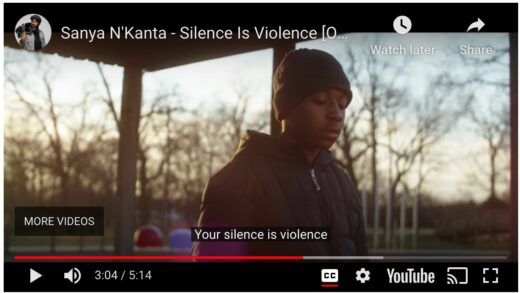The German band Seven Purple Tigers’ new self-titled debut album is one of the best DIY overseas debuts we have heard this year.
The LP is chock full of surprisingly varying genres and styles, covering the spectrum from indie rock, pop, soul, R&B and experimental rock in ways that are creative and interesting.
The album kicks off with the energetic track, “Ogliastru,” featuring a searing slide guitar juxtaposed with mournful lyrics and vocals.
“The original piece was a much slower, more thoughtful piece with a melancholic guitar melody playing between verses,” says Austin Horn, songwriter, vocalist, and guitarist.
Together with his partner, singer/songwriter Philip Dyszy, the duo founded the band in 2015 while in Krakow, Poland.
Horn explains how Dyszy added a slide guitar to the track to give it a “firey facelift to end out the song in a flurry of feedback.” “Ogliastru” was named for a small island village in Corisca, Greece.
The band, currently based in Freiburg, Germany, chose the track as the opener on their debut because it is their oldest song.
Next, the pace picks up considerably with a decidedly more pop-oriented verve on the track, “Messenger Pigeon.”
The song sports sweeping melodies which remind us of bands like Gin Blossoms and Blues Traveler. As the number progresses, it sinks in as the melodic hooks and choruses draw the listener in further. This track is ready for radio.
The band switches things up again on “Solstice Days,” a track that does not even sound like the same group. It is a straight-up acoustic soul and R&B-inspired composition with gorgeous melodies, surprising instrumentation, and engaging vocal progressions. This song is also one of the top tracks on the album.
Horn says that “Solstice Days” is intended to be the band’s answer to “a softer summer jam.” It does just that – and with remarkable results.
“But don’t let that fool you into thinking there isn’t a pick up into a rocking climax,” Austin says, and which is true.
The song, written and recorded last summer, also “explores the higher limits of my range…the addition of lower vocals helped round out the song, and Phil added the vocal background to the final verse,” Horn says adding that the song is a staple of Seven Purple Tigers’ live shows.
In fact, according to Horn, their adscititious musical influences include
Queens of the Stone Age, Arctic Monkeys, David Bowie, The Smiths, Jeff Buckley, Nick Drake, Tame Impala, Red Hot Chili Peppers, Tom Waits, Kings of Convenience among others.
The rhythm and flow of the songs are just as much credited to bassist Sebastian Heieck and drummer Felix Schwer, who definitely are not newbies to their ranks. In fact, the pair set the backing for some of the album’s best tracks.
The following song, “Down The Hole,” is another more R&B and soul-oriented number, but with a more sinister theme, one could say.
A comparable track, “Speaking Out,” has a booming alt-rock sound but it falls a bit shy of its real potential. It’s hard to tell if it’s the song itself or the mixing, or both.
The band mellows things out considerably with the sad, strangely wonderful, acoustic number, “A Song for The Rain.” This is one of the album’s other standout songs and it’s pretty much just an electric guitar and vocals.
“The original subject matter is about dealing with one’s own mental health in a positive light,” Horn says, noting that the lyrics for the second verse to the song were written fifteen minutes before they were recorded.
Things change radically with the space-rock like intro to “Limelight Baroness.” The song has more flair and intrigue going on than the other alt-rock leaning tracks on the album.
The memorable song, “Do You Love Me (Now)?” (buried at No. 10?), has a rock and roll swagger, solid progression and a snarl that is arresting and intriguing at the same time.
We would have put this track higher up on the album’s track listing. (It could also be a single release if the band wanted to make it such.)
Seven Purple Tigers debut album closes with “Basata,” which reminds us of Donovan, or even more, Nick Drake. It would have been so much better of a song if it had been made longer by adding some additional verses. Why waste something good?
It is another track that may have been best highlighted near the top of the album’s tracklisting (just because people tend to listen to 4-5 tracks on a 10-12 track album).
According to Horn, the 11-track album was recorded in a “whirlwind 10-day recording session” in Freiburg and culminated three years of songwriting and recording.
Horn and Dyszy also produced the album and Robert Pachaly mixed and mastered. All in all this is a good album with a bunch of solid tracks and almost the same number that could be better, or left off altogether. Check these guys out.





